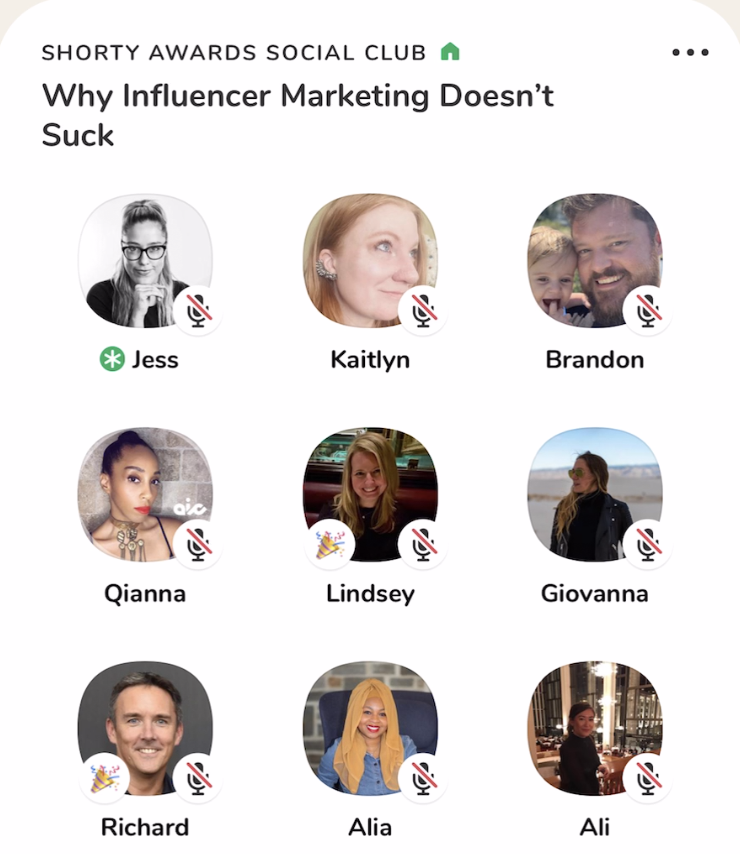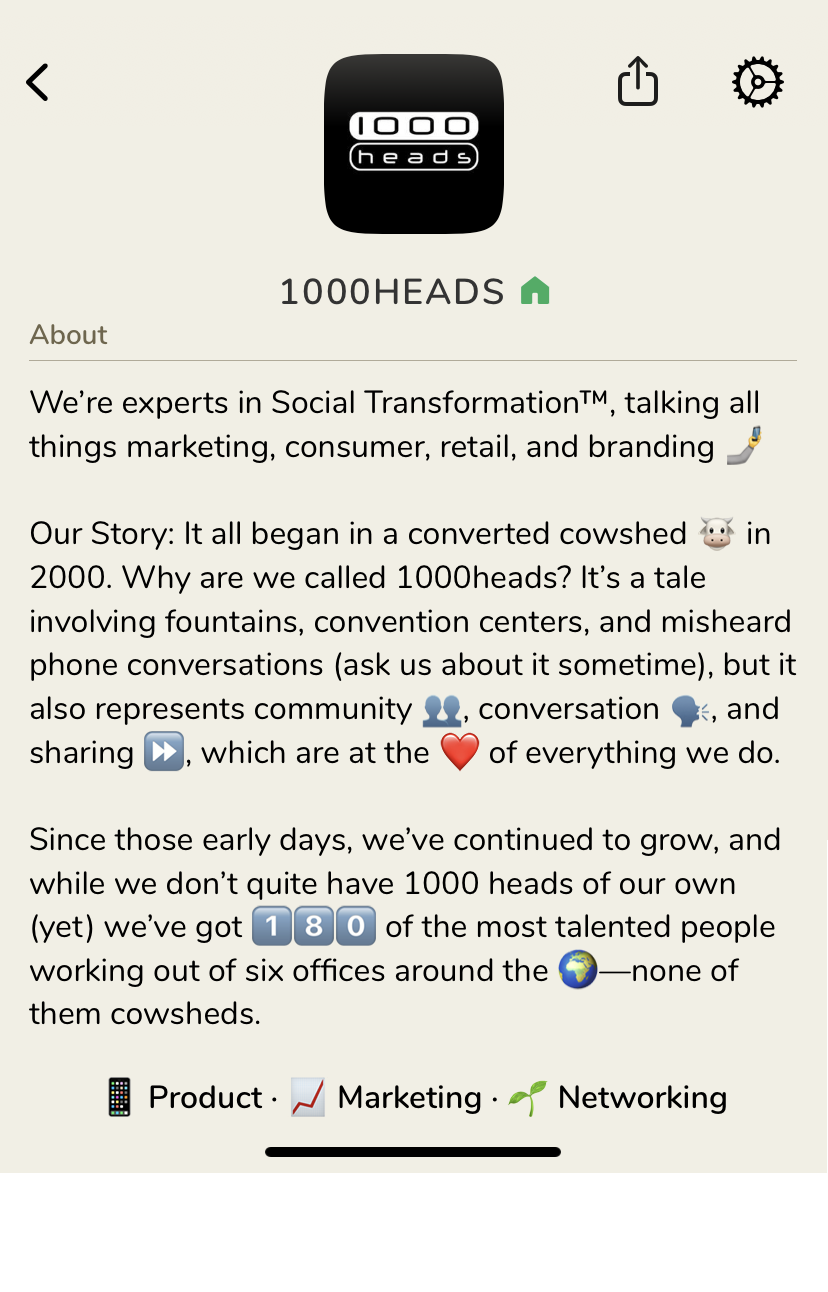We Hosted Our First Clubhouse Session – This Is What We Learned

Streaming audio is one of the biggest trends to come out of the last year. For early adopters, it allowed us to talk through ideas out loud while isolated at home. And you sound a lot less crazy talking to a wall when there’s an audience of listeners on your phone.
Streaming audio was born out of the motivation to connect people. Founders Paul Davison and Rohan Seth both have long histories developing platforms that breed connection. Their affinity with audio (from old-school phone calls to podcasts) was the added ingredient that brought audio chats to life.

You’ve heard of Clubhouse, right?
For the unindoctrinated, Clubhouse is like a podcast mixed with a Socratic seminar. Clubhouse Clubs are managed by individuals and, more recently, brands and organisations, and they act as a home base with a brief description of the purpose of the Club and a list of members.
A Club can host a Room, which is an open space to chat about just about anything. Rooms exist to do everything from share experiences using cryptocurrency to participating in a dating game show. Anyone can join a Room and listen quietly or raise their hand to be invited on stage and speak. A host or group of co-hosts control the room while it’s active, inviting people to the stage, moderating the conversation, and (occasionally) muting that one guy who doesn’t know when to stop talking.
1000heads x Shorty Awards
1000heads was invited to co-host a Clubhouse Room with the Shorty Awards, the premier awards body for all things social media. Our U.S. Community Director, Jess Turner, led the partnership.

The structure for this Room was similar to a panel where half-a-dozen selected Shorty Finalists would be invited as the main speakers. Everyone else in the room could listen to stories of their nominated campaigns and marketing advice and then would get the option to ask questions halfway through the session.
The topic was, “Why Influencer Marketing Doesn’t Suck: Influencer marketing is in the awkward teenage phase. Marketers and consumers alike have their doubts but done right, these campaigns can be a hit. Experts discuss why you shouldn’t count them out.”
Naturally, we had a lot to say. ?
Why Use Clubhouse?
Brands are always asking us for innovative ways to reach their audience. When Clubhouse started to gain momentum, we got excited. (We even created our own 1000heads Club!) We saw a unique audience using the platform. The focus on audio (especially after a year of Zoom fatigue) opened up possibilities for new interactions with that audience.

“What I noticed about Clubhouse as opposed to other social platforms is the pervasive sense of professionalism and thought leadership,” said Jess after hosting the Shorty Awards session. “While these are major use cases on other platforms like LinkedIn, Clubhouse feels like a place where when you speak, it must be intentional.”
As co-host, Jess made sure she helped the invited panelists feel prepared before the session so they could bring their best selves to the conversation. She scheduled an onboarding video call with all panelists and prepared a takeaway resource document for panelists to review independently. This comforted those who were new to the platform or weren’t avid Clubhouse users.
Hot Tip: A platform being new shouldn’t make it scary. By doing the upfront work to build a prep document, anyone can benefit from being an early adopter. Plus, it becomes a resource that can evolve with the platform over time, making it easier and easier to onboard new participants.
When it came to the actual conversation, Jess split responsibilities with a co-host. She was in charge of the more technical moderation elements of upgrading people to speakers as they raise their hands and re-setting the Room so the speakers and hosts can focus on the conversation. Jess opened the Room and set the tone by briefly summarising the purpose of the chat and calling on speakers to add their input to guide the discussion forward. Her co-host chimed in to move the conversation along and create the feeling of a discussion between the panelists and listeners.
This back-and-forth lent itself nicely to allowing each host to focus on keeping the conversation moving, a unique and essential aspect of Clubhouse that makes it stand out from a podcast or webinar.

The Future of Audio Streaming
Although Clubhouse was first on the scene, the major social media platforms have wasted no time launching competitors. Twitter launched Spaces in early May, and LinkedIn and Facebook both announced platforms that aren’t far behind.
But Clubhouse still has its benefits.
“I see a lot of peer-to-peer learning and support, which was a huge trend in 2020 and continues to be for 2021,” said Jess. “Clubhouse is also a massive networking opportunity. Out of the chat I hosted, I now have several fascinating new professional connections, and they are now connected as well.”
In the last year, we’ve all learned how vital connection is. And people are hungry to learn more, grow their network, and dive back into the world. Clubhouse is one of many great platforms to do that that offers a unique experience, especially for those not quite ready to hang up the sweatshirt they’ve been living in for the last few months.